I am using apollo-server-express for graphql back-end. I am going to process only mutations there, but I want to redirect query and subscription on hasura by means of schema stitching with introspection. Queries through apollo-server to hasura are working fine and returning the expected data.
But subscriptions are not working and I am getting this error: " Expected Iterable, but did not find one for field subscription_root.users".

And besides, server hasura is receiving events:

But apollo-server resents the answer from hasura. It is not the first day I suffer with this and I can not understand what the problem is.
In the editor hasura subscriptions work.
If you need any additional info, I will gladly provide it to you.
import {
introspectSchema,
makeExecutableSchema,
makeRemoteExecutableSchema,
mergeSchemas,
transformSchema,
FilterRootFields
} from 'graphql-tools';
import { HttpLink } from 'apollo-link-http';
import nodeFetch from 'node-fetch';
import { resolvers } from './resolvers';
import { hasRoleResolver } from './directives';
import { typeDefs } from './types';
import { WebSocketLink } from 'apollo-link-ws';
import { split } from 'apollo-link';
import { getMainDefinition } from 'apollo-utilities';
import { SubscriptionClient } from 'subscriptions-transport-ws';
import * as ws from 'ws';
import { OperationTypeNode } from 'graphql';
interface IDefinitionsParams {
operation?: OperationTypeNode,
kind: 'OperationDefinition' | 'FragmentDefinition'
}
const wsurl = 'ws://graphql-engine:8080/v1alpha1/graphql';
const getWsClient = function (wsurl: string) {
const client = new SubscriptionClient(wsurl, {
reconnect: true,
lazy: true
}, ws);
return client;
};
const wsLink = new WebSocketLink(getWsClient(wsurl));
const createRemoteSchema = async () => {
const httpLink = new HttpLink({
uri: 'http://graphql-engine:8080/v1alpha1/graphql',
fetch: (nodeFetch as any)
});
const link = split(
({ query }) => {
const { kind, operation }: IDefinitionsParams = getMainDefinition(query);
console.log('kind = ', kind, 'operation = ', operation);
return kind === 'OperationDefinition' && operation === 'subscription';
},
wsLink,
httpLink,
);
const remoteSchema = await introspectSchema(link);
const remoteExecutableSchema = makeRemoteExecutableSchema({
link,
schema: remoteSchema
});
const renamedSchema = transformSchema(
remoteExecutableSchema,
[
new FilterRootFields((operation, fieldName) => {
return (operation === 'Mutation') ? false : true; // && fieldName === 'password'
})
]
);
return renamedSchema;
};
export const createNewSchema = async () => {
const hasuraExecutableSchema = await createRemoteSchema();
const apolloSchema = makeExecutableSchema({
typeDefs,
resolvers,
directiveResolvers: {
hasRole: hasRoleResolver
}
});
return mergeSchemas({
schemas: [
hasuraExecutableSchema,
apolloSchema
]
});
};